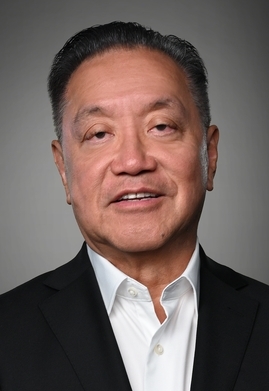
Photo/Broadcom website
This week, US-based semiconductor and software giant Broadcom saw its stock price soar and break new historical highs. On Friday, December 15, Broadcom closed at $1129.74, with a market value soaring to $466.28 billion.
Since the beginning of this year, thanks to the explosive demand for chips brought by generative AI, Nvidia, which has GPU resources, has become the most dazzling presence in the US stock market. However, Nvidia gradually showed signs of slowing down in the second half of the year, while Broadcom continued to advance vigorously. In the past six months, Nvidia’s stock price rose by 14.52%. Broadcom’s rose by 30.14%, twice as much as Nvidia’s, and also higher than AMD, Intel, Qualcomm and other more famous chip companies.
Citigroup pointed out in its latest report that Broadcom can directly benefit from AI demand and may become the second-largest semiconductor company by market value, only behind Nvidia. The revenue from AI infrastructure is expected to double from $4 billion in fiscal year 2023 to $8 billion in fiscal year 2024, which directly drove Broadcom’s surge this week. Currently, Nvidia’s market value is $1.2 trillion, followed by TSMC with $475.8 billion. Broadcom is only one step away from overtaking TSMC.
Broadcom’s ability to build a moat in the chip field is also inseparable from the bold and aggressive acquisition path of CEO Hock Tan. With his superb operation, Tan has also become an influential Chinese semiconductor CEO, along with Nvidia’s Jensen Huang and AMD’s Lisa Su.
Nvidia’s GPU has become the preferred chip for large AI models, and the market is in short supply. However, tech giants are not willing to pay the high “Nvidia tax”. Google has already started to develop its own AI chip TPU, and its chip outsourcing service provider is Broadcom. It is reported that Broadcom participated in the design of each generation of TPU, and obtained a 70% profit margin from Google’s TPU orders.
Broadcom’s key technical capability is a chip communication technology called SerDes (serializer/deserializer), which can greatly improve the communication efficiency between chips. In the global 50GB/S SerDes market, Broadcom occupies a monopoly share of 76%. Tesla, Meta, Tesla and other companies also need to choose to cooperate with Broadcom on their self-developed chips.
Broadcom revealed in a recent conference call that it has reached chip design cooperation with more big companies. On the other hand, Broadcom’s Ethernet switch growth in the AI field is also strong, and it is expected to increase to $800 million in fiscal year 2023, and double in fiscal year 2024, reaching $1.6-2 billion. It is for this reason that Citigroup pointed out that Broadcom can directly benefit from AI demand and become the second-largest semiconductor company by market value, only behind Nvidia.
Broadcom’s acquisition of SerDes, this key technology, can be said to be an “accidental success” of its acquisition expansion. In 2013, Avago, the predecessor of today’s Broadcom, acquired chip company LSI, obtaining its high-speed network and chip customization business, and the related SerDes technology patent was led by LSI’s Chinese scientist Cathy Liu.
In 2015, Avago acquired Broadcom for $37 billion, higher than its own market value. The latter’s revenue was twice that of Avago. The merged company retained the more widely known name of Broadcom and became the fifth largest semiconductor company in the world. Ten months after the deal, Broadcom acquired data center network provider Brocade for $5.9 billion. In terms of software business, software vendors CA Technologies, network security group Symantec’s security business, and the world’s fourth largest system software company VMware were successively acquired by Broadcom.
Such aggressive acquisitions are closely related to CEO Hock Tan’s tough attitude. Tan, 70 years old, was born in Penang, Malaysia. Compared with Jensen Huang and Lisa Su, he appeared less frequently in front of the media, but was praised as the “fierce crocodile” of the semiconductor industry. He is good at making big bets, expanding Broadcom’s patent moat and strengthening its market position through constant acquisitions.
The most prominent example of Tan’s acquisition mania is the Qualcomm acquisition case. In 2017, Broadcom wanted to acquire semiconductor giant Qualcomm for $130 billion, but was strongly opposed by Qualcomm and ultimately vetoed by the Trump administration on the grounds of national security. If the deal had succeeded, it would have been the largest acquisition in semiconductor history.
After the acquisition, Tan usually adopted drastic business and personnel adjustments to improve the company’s revenue, profit margin and other financial indicators, and pushed the stock price all the way up. On November 22, Broadcom acquired VMware for $61 billion, and soon there was news that it would cut 1,267 jobs from January next year.
On the other hand, Tan maximized his own interests in cooperation with his patents. In 2021, Broadcom once aggressively demanded a 30% price increase from Google, and also asked to sign an exclusive agreement with Amazon. Google certainly wanted to get rid of Broadcom’s control, and there were rumors in September that Google would no longer buy Broadcom’s chips, causing the latter’s stock price to fall nearly 4% that day. However, analysts generally believe that Google currently does not have the ability to produce TPU by itself.


 川公网安备 51019002001991号
川公网安备 51019002001991号





